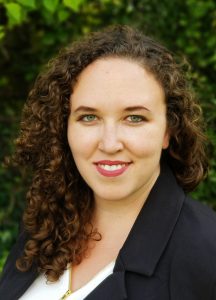In the spring of 2020, 36 PhD students from a range of academic disciplines at Penn participated in Career Services’ PhD Career Exploration Fellowship (CEF) program, where they were matched with a host organization in Philadelphia to learn about different careers beyond academia. Meghan Hall, PhD candidate in English, was placed as a Fellow with the Alice Paul Center/Gender, Sexuality, and Women’s Studies at Penn. Read about her experience in the CEF below!

What was your fellowship experience like working with your host? What activities did you engage in?
The staff at APC/GSWS were extremely welcoming. At an initial meeting, we discussed my goals for the Fellowship, the initiatives the Center is working on, and what project(s) I could contribute to in the time allotted.
I contributed to the Center’s web-based Resources Archive Project. I researched and drafted content for three web pages, on “Trigger Warnings,” “Sexual Violence Resources: On Campus, Local, and National,” and “Sexual Assault Reporting: A Guide for Survivors, Their Loved Ones, and Educators.”
Because Penn’s campus closed in late March (due to the Covid-19 pandemic), our meetings and shadowing moved online, and I sat in on a planning meeting for a virtual Pride event.
What did you learn from this opportunity (about yourself, about career fields, the job search, etc.)?
I learned that the job search is a fundamentally social endeavor, not just because networking really is important for broadening your horizons and giving you access to job opportunities that you might not otherwise know are available, but because those around you have the skills and expertise to help you as you figure out what your career path could look like.
Making allies at your host institution, at career services, and with your fellow CEF Fellows is crucial for building a professional network.
How does your CEF experience benefit your future career plans?
In addition to getting official experience writing for the digital space, I got an inside look at how academic programs function. I learned about the organizational structure of GSWS, how academic programming comes together (including how they apply for external funding), and about the unique rewards and challenges of a career in academic administration. I completed this Fellowship with valuable knowledge of the working dynamics of academic departments.
What was the most valuable part of your CEF experience?
I began my job search soon after I began the Fellowship and having only recently decided to go the non-academic route, there was a steep learning curve. The workshops that Career Services put on added structure to this process: they helped me to get my (very new) LinkedIn profile in order, to drastically improve my resume, and to explore more career paths than I had initially considered. Having regular check-ins also helped me to make consistent progress on my job hunt.
Top reason PhD students should apply to the CEF?
Whether you’re planning to launch an active job search this year or you’re just testing the waters of non-academic careers, making the transition from academia to other industries can be a daunting process. Between working with your host and taking advantage of the programming provided by Career Services, the Fellowship offers a space to be uncertain and to ask the questions you’re afraid to ask (pro tip: a lot of other people have those questions too). Having the space to be unsure and to work through the challenges and doubts you may be facing as you consider non-academic career paths is invaluable.
For more information about Career Services’ PhD Career Exploration Fellowship, please visit our program webpage here.




